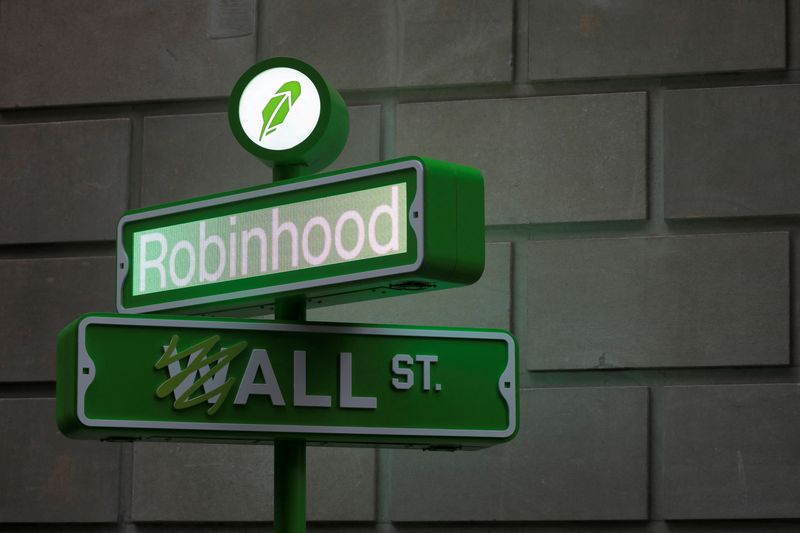
By Hannah Lang
(Reuters) -Financial technology companies like Robinhood (HOOD) and buy now, pay later provider Affirm (AFRM) have been caught in the whirlwind of President Donald Trump’s sweeping tariffs, sending shares sharply downward amid fears about worsening consumer finances.
Global markets have been battered since Trump last week introduced a new baseline 10% U.S. tariff on goods from all economies. Investors fear that the duties could lead to higher prices, weaker demand and potentially a global recession.
That could spell trouble for fintech companies, many of which rely heavily on consumers to be able to repay loans and deploy extra income toward stocks and other investments.
Some fintech companies, including Affirm and Robinhood, also earn fees from debit card and credit card purchases – revenue that could be vulnerable if consumer spending cools.
While banks can have a diverse client base that could insulate firms from sudden market contractions, fintech companies are more likely to serve consumers that would be at the forefront of an economic shock, analysts say.
“A recession typically hits nice-to-have mass-market consumer businesses, including fintechs, harder than other sectors because the first group to pull back spending in a recession is lower-income consumers,” said James Ulan, director of research, emerging technology at PitchBook.
Shares in Affirm are down more than 21% since Trump launched his global trade war on April 2, while shares in Robinhood are down more than 17%. Shares in SoFi, which offers loans and banking services, are down nearly 20%.
“The adoption of honest financial products like Affirm is a secular and enduring trend across market cycles,” a spokesperson for Affirm said. “Against a backdrop of increased market volatility and uncertainty, Affirm’s products become even more compelling to both consumers and merchants.”
Robinhood declined to comment. A spokesperson for SoFi did not immediately respond to a request for comment.
For companies that extend credit, like Affirm and SoFi, worsening consumer sentiment and fears that tariffs could drive up prices have called into question the ability of borrowers to pay off loans.
Affirm reported that for the quarter ending December 31, 2.5% of its monthly loans were delinquent by more than 30 days. That was a slight increase compared to the year prior, but the company attributed that increase to a pricing adjustment.
SoFi said that for the quarter ending December 31, 0.55% of its personal loans were delinquent by more than 90 days.